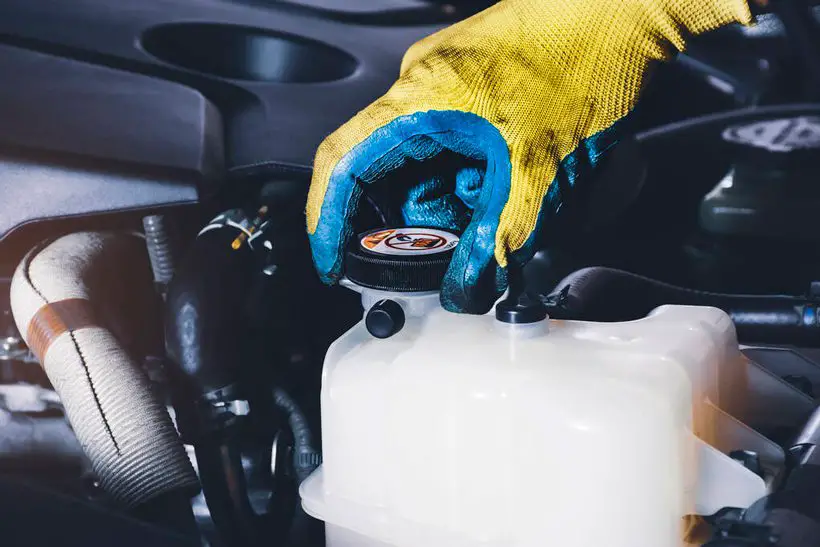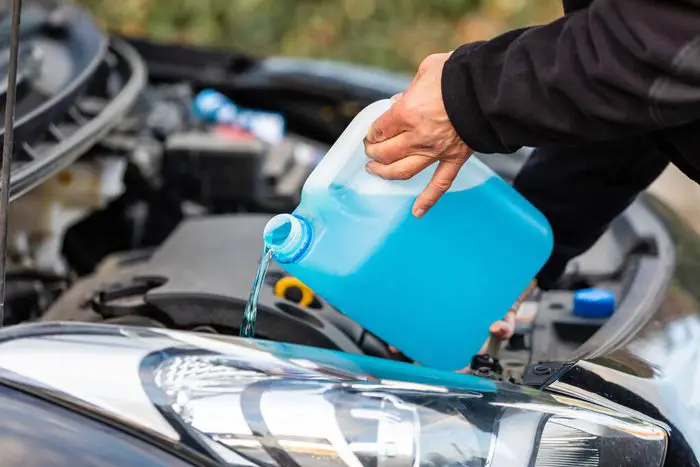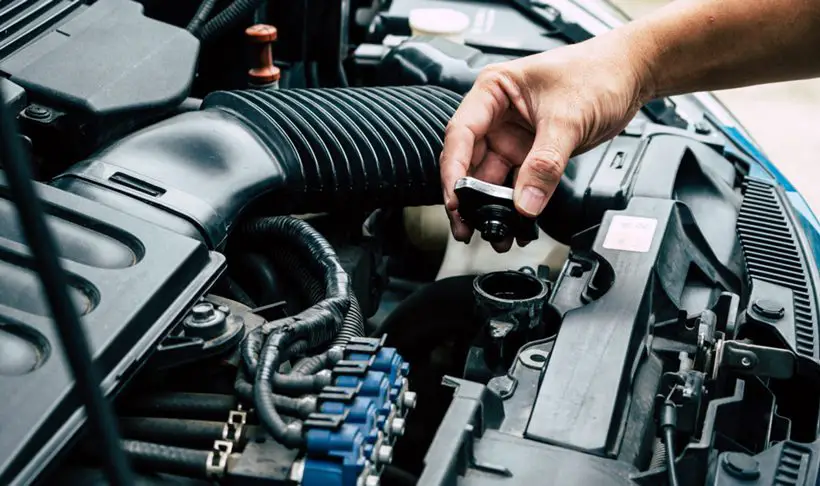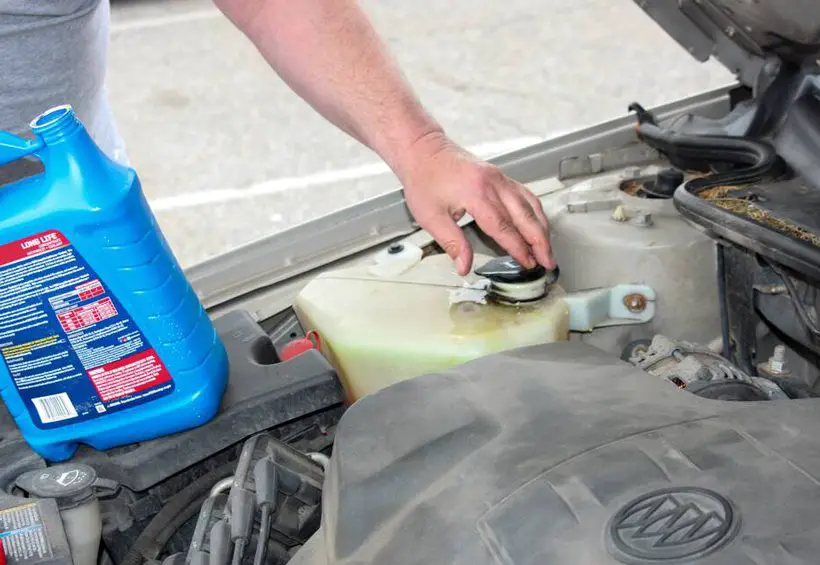Understanding the role of coolant in engine temperature regulation is crucial for maintaining the health and performance of your vehicle. The primary function of this radiator fluid is to absorb heat from the engine and dissipate it through the radiator. This helps to regulate the engine’s temperature.
Coolant is a vital component in maintaining optimal engine temperature and preventing engine damage. Without it, the engine would quickly overheat and potentially suffer permanent damage. It also serves several other important functions. This includes preventing corrosion and rust within the engine, lubricating moving parts, and protecting against freezing in cold weather.
Throughout this article, we will examine the different types and properties of this fluid and their role in preventing engine overheating. We will also discuss the necessary steps for maintaining its levels and quality. That’s to ensure the continued protection of the car engine.
How Coolant Regulates Engine Temperature?

Coolant regulates engine temperature as follows.
Circulates Through the Engine Block
Coolant plays a critical role in regulating the temperature of an engine by circulating through the engine block and heat absorption. The process begins with this radiator fluid being pumped from the radiator into the engine block. There it flows through passages that are designed to come in contact with the hot engine components.
As it moves through the engine block, it absorbs heat from the engine and becomes hotter. The heated fluid then flows back to the radiator. There it is cooled down before being pumped back into the engine block to continue the cycle.

Absorbs the Heat
The coolant’s ability to absorb heat is due to its composition, which usually consists of a mixture of water and antifreeze. Antifreeze, also known as a type of radiator fluid, contains chemicals that help it to maintain its liquid state even at extremely high temperatures.
Additionally, the antifreeze also helps prevent corrosion and damage to the engine block and other components. It’s done by lubricating them and providing a protective layer.
Without this heat transfer fluid, an engine would quickly overheat and suffer severe damage. That’s because the high temperatures would cause the metal components to expand and eventually seize.
Furthermore, the lack of this fluid can lead to the formation of rust and other types of corrosion. This can clog the cooling system and cause further damage.
Types of Coolant
There are several types of engine coolants available on the market, each with its unique properties and advantages. Here are three of the most common types:

1. Ethylene Glycol-Based
This is the most common type of coolant and is typically made from a mixture of ethylene glycol and water. This type is known for its excellent heat transfer properties and ability to withstand extremely low temperatures.
These make it ideal for use in cold climates. However, it is also toxic and can be harmful to both humans and animals if ingested.
2. Propylene Glycol-Based
Propylene glycol-based coolant is similar to ethylene glycol-based one but with a less toxic composition. It is still effective at transferring heat and can withstand cold temperatures.
Ethylene glycol-based ones pose potential health risks, so this is an ideal alternative.
3. Hybrid Organic Acid Technology (HOAT)
This is a newer type that combines the properties of both traditional inorganic acid and organic acid coolants. It is made from a combination of ethylene glycol or propylene glycol and a blend of organic acids.
The acid can be sebacic acid or benzoic acid. This type is known for its long-lasting protection against rust and corrosion. This makes it a popular choice for newer vehicles.
Other Types of Coolant
In addition to these three types, several other specialized coolant formulations are available for specific applications. These include-
- Extended-life types for heavy-duty vehicles: This is a type of engine coolant designed to provide long-lasting protection for heavy-duty vehicles, such as trucks and buses. It contains organic acid technology (OAT) that helps to prevent corrosion, scale buildup, and other engine-related issues.
- High-performance racing types for racing engines: These are specifically designed to provide superior cooling and heat transfer properties for racing engines. Those engines operate at high temperatures and under extreme conditions. They often contain additives such as glycols, corrosion inhibitors, and surfactants to enhance their performance.
It is essential to use the correct type of this radiator fluid recommended by the manufacturer. It’s crucial to ensure optimal performance and longevity of the engine.
Properties of Coolant

The followings are the key properties of coolant that ensure the proper temperature regulation of your car.
Freeze Protection
One of the primary functions of this radiator fluid is to protect the engine from freezing in cold temperatures. It is designed to maintain a liquid state at shallow temperatures. This prevents the engine from becoming damaged due to ice expansion.
Boiling Point
Coolant also has a high boiling point, which helps to prevent the engine from overheating in hot temperatures. The boiling end needs to be high enough to prevent this fluid from boiling and evaporating. This can lead to engine damage.
Corrosion Protection
In addition to preventing corrosion, this heat transfer fluid contains additives that protect the engine from rust. These additives create a protective barrier on the engine’s metal surfaces. It prevents rust and corrosion from forming and potentially causing damage.
Lubrication

Coolant also contains lubricants that help to keep the engine running smoothly. These lubricants help to reduce friction between the engine’s moving parts. This can help to extend the life of the engine.
pH Balance
In engines, this radiator fluid has a specific pH balance (7.0-8.0) that helps prevent acidic compounds from forming. These compounds can cause corrosion and damage to the engine over time.
Compatibility
There must be compatibility between the coolant and the materials in the engine’s cooling system. If incompatible coolant is used, it can cause damage to the cooling system components. This can lead to leaks and engine damage.
Color
Coolant is often colored to help distinguish between different types and to indicate the level of corrosion inhibitors present. However, the color does not necessarily indicate its effectiveness or compatibility with the engine.
How Coolant Prevents Overheating?

Here are some of the ways that this heat transfer fluid helps to prevent engine overheating:
Maintaining Optimal Engine Temperature
As we mentioned before, coolant helps to regulate the engine’s temperature by absorbing heat from the engine and dissipating it through the radiator. This radiator fluid circulates through the engine block. There it comes into contact with the hot engine components and absorbs heat.
It then flows through the radiator, where it is cooled down before being circulated back through the engine. This process helps to maintain the engine’s temperature within a safe and optimal range. Moreover, it prevents overheating.
Preventing Corrosion and Rust
Coolant contains additives that help to prevent corrosion and rust from developing within the engine. Corrosion and rust can clog the cooling system and prevent the heat transfer fluid from flowing freely. This can lead to engine overheating.
Additionally, corrosion and rust can cause damage to the engine’s metal components. This reduces their lifespan and potentially causes the engine to fail.
Maintaining Coolant Levels and Quality
Maintaining the proper level and quality of coolant is essential in preventing engine damage and ensuring optimal performance. Here are some key steps to maintaining its levels and quality:

Checking Coolant Levels
It is important to regularly check the level of this fluid in the vehicle’s radiator and reservoir. If the level is low, then it can cause the engine to overheat, potentially causing damage.
In such circumstances, it is important to add the coolant to the recommended level of the reservoir or radiator.
Flushing and Replacing Coolant
Coolant must be replaced periodically to ensure it continues to function effectively. Over time, the additives in this fluid can break down and lose their effectiveness. This reduces its ability to prevent overheating and corrosion.
It’s recommended to flush and replace the coolant every two to three years or as the vehicle’s manufacturer recommends.
Monitoring Coolant Quality
It’s important to monitor the quality of this heat transfer fluid to ensure it is still effective in preventing overheating and corrosion. Signs of degraded coolant include-
- A change in color
- Visible sediment
- A sweet smell (indicating the presence of ethylene glycol)
If any of these signs are present, it is important to flush and replace the fluid immediately.
Follow The Maintenance Schedule
The manufacturer’s maintenance schedule will outline when this radiator fluid should be replaced. It’ll also contain when the system should be inspected for leaks or other issues. Following this schedule can help ensure this fluid system is properly maintained. Major problems can also be prevented by this.

Conclusion
In conclusion, proper maintenance of coolant is essential for preventing engine overheating and ensuring optimal engine performance. This radiator fluid plays a critical role in regulating the engine temperature. It prevents corrosion and rust and lubricates the engine’s moving parts.
You should regularly check the coolant level and flush and replace it as needed. Moreover, you should monitor its quality to ensure it is still effective in protecting the engine.
By following these steps and manufacturer recommendations, you can help to extend the life of your engines. Preventing costly repairs caused by overheating and corrosion will also be possible.
